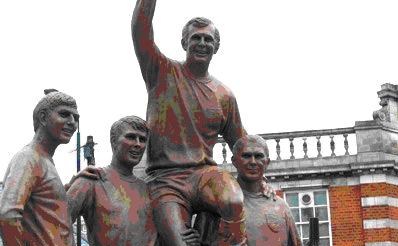12 July 2018
World Cup success – economic viagra or a big bill?
Results on the pitch have mixed economic and social connotations.
By Frank O’Nomics
Retailers finally have something to smile about. After weeks of news stories of more and more stores reporting plans to close shops, England’s extended run in the World Cup has given them something to cheer about, as huge sums have been spent on beer, barbecues and large TVs. Pubs and clubs have shared in the success as the masses have increasingly chosen to enjoy our success collectively, rather than watching penalty shoot-outs hiding behind the sofa at home. We have yet to see the data regarding missed work days from over-indulgence, but the numbers for retail sales have been impressive and the pick-up in consumer confidence points to a broader economic dividend. However, two factors related to this increased spending give cause for alarm. The first is that people are over-extending their already threadbare personal finances and the second is the huge amount of money that UK residents have been gambling on the World Cup. While the nation may understandably want to celebrate the success of Gareth Southgate and his intrepid boys, we may finish up ruing the longer term societal consequences.
Overall like-for-like spending, reported by the British Retail Consortium, is up 1.1% over the year, with data from Barclaycard showing a 5.1%y/y rise on spending on entertainment in June, which is the highest for 14 months and has only been higher twice in the last 3 years. The coinciding of a heatwave with the World Cup has undoubtedly enhanced the effect, but those UK consumers expressing confidence in their household finances is now running at 65%, up from 54% as recently as February. This is somewhat at odds with the news coming out on progress in Brexit negotiations and raises the prospect of people over-extending themselves during the current period of euphoria. We have a history of doing this, it seems. In 1966 quarterly GDP growth was an impressive 0.5% and 0.7% in the quarters straddling the World Cup, but the payback came in Q4 when GDP actually fell by 0.3%. The situation deteriorated further, with the UK forced to devalue sterling in 1967 (a potential parallel with the Brexit scenario). In 1990, the last time we were in the semi-finals, there was a similar change in GDP (although inflation was a major issue at the time) with GDP growing 0.8% in Q2, only to fall sharply in Q3 and Q4.
Comparing economic growth in very different circumstances may have little validity beyond illustrating that there is a payback for a period of heavy consumer spending. However, part of the current euphoria goes beyond just buying beer and large-screen tellies, with much spending now devoted to gambling. The UK betting industry has been a huge beneficiary of the World Cup with Brits estimated to have wagered some £2.5bn over the course of the event. This amounts to twice the total bets made during the previous tournament and is a sum almost exactly equal to the amount families are estimated to spend on food, drink, merchandise and entertainment should we win. It is also an ample illustration of the effects of deregulating the gambling industry. Comparisons to other parts of Europe demonstrate the difference generated by our approach, with revenues in the UK $5.7bn per annum, compared to those in France of just $1.1bn and Germany of $0.9bn.
What is the problem? Surely we should be pleased at having an industry that generates double-digit margins and dwarfs the rest of Europe. The problem is that some 2mn people in the UK are seen as being at risk of becoming problem gamblers, and a recent study from Trent University highlights the impact of gambling on the most vulnerable sectors of our society. 70% of children have seen gambling advertising on social media and the Gambling Commission reports that those with problems cite advertising as being a trigger. Too late there has been an effort to moderate the language used in advertising, but while we can’t turn on the television without seeing Ray Winstone, and the number of football teams with gambling websites emblazoned across their shirts seems to grow by the season, the efforts to constrain the process seem minimal. There are ways in which the government could moderate the dangerous side of the growth in the industry, partly by raising awareness of the problems of gambling, but also by re-routing data back to the gambler so that they have a clear idea what they have wagered and lost. However, for those getting themselves into financial trouble now there is little that can be done.
The World Cup is not the problem here. A period of hope and expectation and the possibility of national success can help us to forget underlying fundamental problems, but there will be some payback as belts have to be tightened. As for the gambling issues, what the tournament has done is to highlight the consequences of a decade of deregulation in the industry. While the UK may have developed a strong business in this area, and one that competes successfully on a global platform, we should not lose sight of the real social consequences of the unchecked marketing of gambling products.


